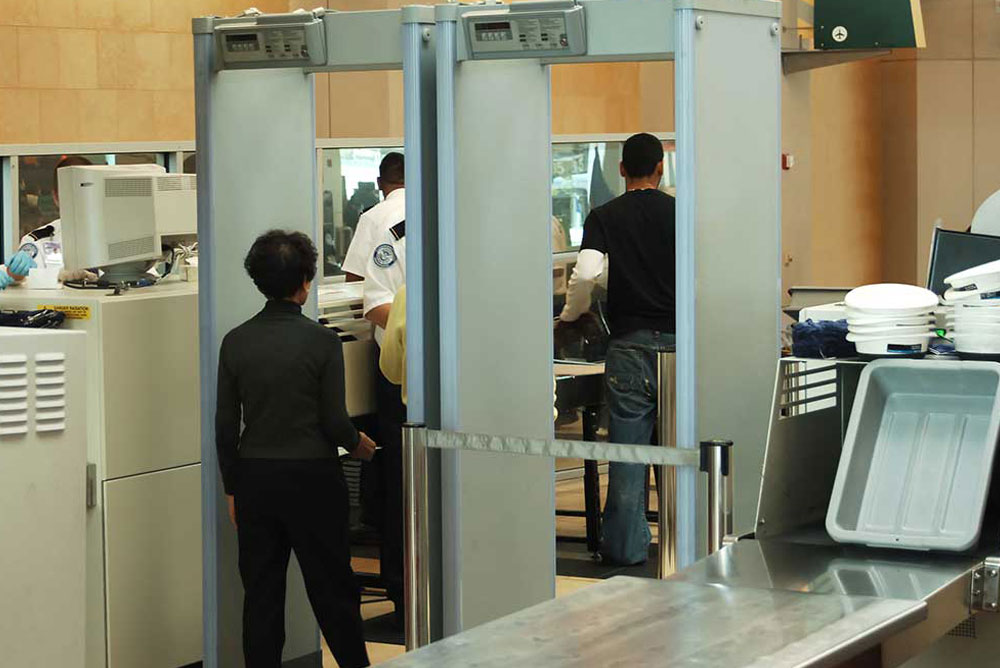Disclaimer: The information on our website is provided for general information purposes only. We make no representations or warranties of any kind, express or implied, about the completeness, accuracy, reliability, suitability or availability with respect to the website or the information contained on our website for any purpose. Any reliance on such information is therefore strictly at your own risk and we are not liable for any damages or losses arising out of or resulting from your reliance on any information contained on our website.
A TSA screener or transportation security screener for the Transportation Security Administration (TSA) ensures passengers’ safety as they travel through airports, railroads, or subways. Transportation Security Screeners check for proper identification and screen passengers or their items to ensure all travelers and modes of transportation and sites are safe. Next, watch a video to learn what a transportation security screener does:
How to Become a TSA Screener
Typically, a TSA Screener has a high school diploma; however, it is becoming more common to have a bachelors degree or two-year degree in criminology or a related field. You also must be a U.S. citizen or national, pass a background check, drug test, medical physical, fitness test, and speak English. TSA has opportunities for veterans; therefore, previous military experience can help when applying for a position without a college degree. Keep in mind there may be some entry-level positions for those with a high school diploma.
Once hired, you will get extensive on-site training. This lasts several weeks and is a blend of classroom and on-the-job training. The first requirement is completing 40 hours of classroom training and then an additional 60 hours of on-the-job training. During the TSA training, you learn all the protocols and procedures required for your job. They even simulate transportation checkpoints to ensure you get real-world practice. You are also taught how to use metal detectors, body scanning equipment, and X-ray machines. During the training, you will be required to pass several written and hands-on evaluations.
Job Description of a TSA Screener
Transportation security screeners are the very frontline of security for passengers. Their primary duty is to screen passengers and their belongings for any items that could prove dangerous while traveling. They use detection devices to discover prohibited items such as guns or explosives that may have been hidden or accidentally left in a person’s luggage and work with law enforcement should a serious violation occur.
TSA screeners provide security for those traveling into and through the United States. They screen passengers at airports and guard railways, subways, and other transportation hubs. Screeners use various techniques and equipment, including x-ray machines, standing and handheld metal detectors, physical hands-on searches, canines, or other security devices, such as cameras and surveillance equipment. TSA agents also search for weapons, drugs, and other contraband that can make travel unsafe.
In addition, they provide customer service, educate or give passengers information on travel regulations, and are on continuous alert. TSA screeners work for the federal governments’ Department of Homeland Security. They usually work full time and a variety of shifts pending on their location. They often are standing for prolonged periods of time and interacting or screening passengers arriving or leaving the USA. Opportunities for positions are all over the country; however, it is a long process to get hired; therefore, one must have patience.
TSA Screener Career Video Transcript
When you travel by airplane anywhere in the country, the safety of every passenger and flight crew member depends on the work of transportation security screeners. They screen passengers, baggage, and cargo to ensure compliance with federal regulations. Transportation security scanners operate basic security equipment, such as x-ray machines and hand wands, at screening checkpoints. They inspect carry-on items for contraband and search baggage by hand when they suspect it contains prohibited items.
When necessary, these workers must test for explosive materials using detection machines or chemical swab systems, and notify supervisors or other safety personnel when security breaches occur. They also confirm that passengers’ tickets are valid and often deal with large numbers of people, sometimes in stressful conditions. For passengers who trigger machine alarms or who are identified for searches, the security screener performs pat-downs or wand searches. Most transportation security screeners enter the field with a high school diploma or high school equivalency. On-the-job training brings them up to speed on procedures. Like most jobs in the security industry, a felony conviction may prohibit entering this field.

